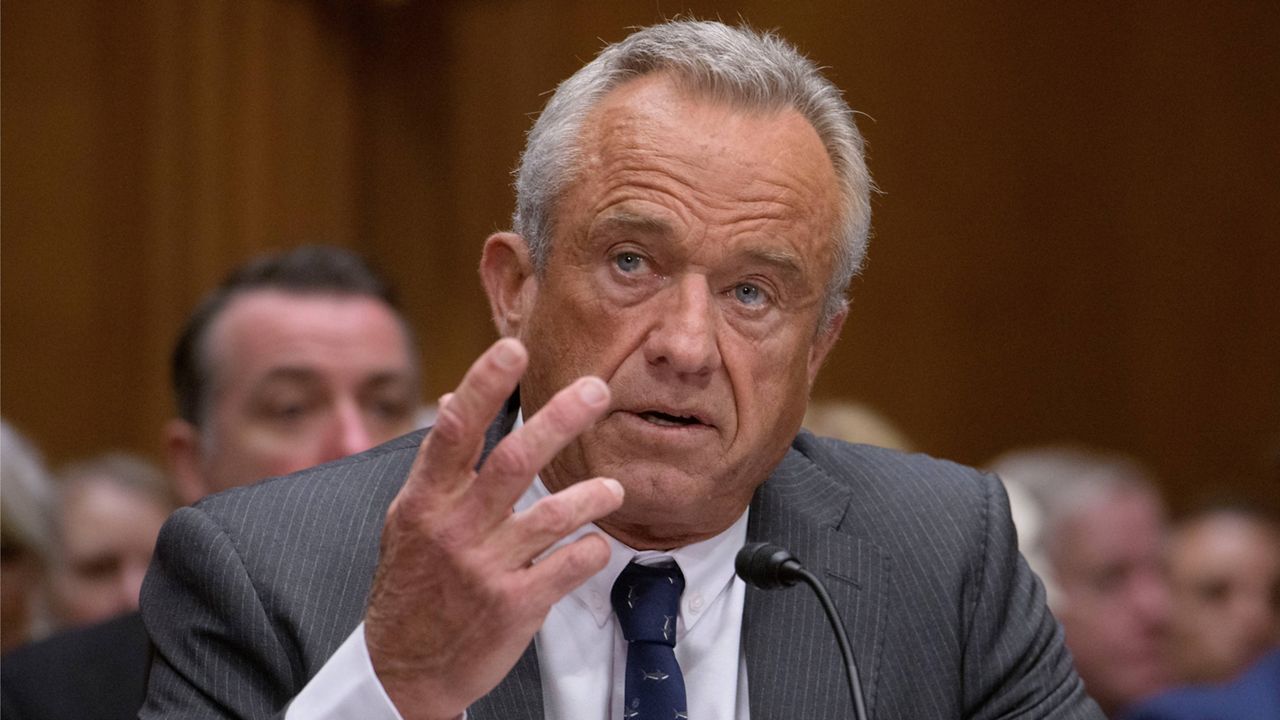WASHINGTON — A Senate panel divided starkly along partisan lines voted on Tuesday to advance the nomination of Robert F. Kennedy Jr., the controversial environmental lawyer turned public health critic, sending his bid to oversee the $1.7 trillion U.S. Health and Human Services agency to the Senate floor.
What You Need To Know
- Robert F. Kennedy Jr. has cleared his first hurdle to become the nation's top health official as the Senate finance committee voted to advance his nomination for a floor vote
- After Tuesday's committee vote, the nomination of the controversial environmental lawyer turned public health critic now goes before a full Senate vote
- Kennedy critics have concerns about the work he's done to sow doubts around vaccine safety and his potential to profit off lawsuits over drugmakers
- Kennedy is a longtime Democrat who ran for president but withdrew to support Donald Trump in exchange for an influential job in his Republican administration
Fourteen Republicans voted together to advance Kennedy's nomination, with even Sen. Bill Cassidy, a Louisiana physician who has aired deep concerns about approving Kennedy, joining in. All 13 Democrats opposed him.
It mattered little on Tuesday that Democrats, as well as some Republicans, have sounded an alarm on Kennedy's work to sow doubt around vaccine safety and his potential to profit off lawsuits over drugmakers.
Tuesday's committee vote is a strong indication that Kennedy's nomination will succeed absent any last-minute vote switches. Republican senators are facing a maximum pressure campaign from the White House as well as Kennedy's formidable following, which has been bombarding senators with hundreds of phone calls and emails.
A full Senate vote has not yet been scheduled. To be installed as the nation's health secretary, Kennedy can lose only three Republican votes if Democrats in the 100-member chamber uniformly reject him.
Cassidy has publicly detailed his personal struggle, as a doctor who has seen the lifesaving ability of vaccines, with Kennedy's confirmation.
"Your past, undermining confidence in vaccines with unfounded or misleading arguments, concerns me," Cassidy told Kennedy last week.
Yet when it came to his vote Tuesday, he advanced Kennedy with a simple "aye."
Cassidy declined to discuss his vote. In a social media post on X, he described "intense conversations" with Kennedy and President Donald Trump's White House that started over the weekend and continued into Tuesday morning ahead of the vote and yielded "serious commitments" from the administration.
Republican Sens. Susan Collins of Maine, Lisa Murkowski of Alaska and Mitch McConnell of Kentucky are all seen as potential no votes because they voted against Trump's defense secretary nominee and have expressed concerns about Kennedy's anti-vaccine work. In a CBS "60 Minutes" interview that aired Sunday, McConnell declined to say how he would vote on Kennedy's nomination but reiterated "vaccines are critically important."
Republican Sen. Thom Tillis of North Carolina, another vulnerable vote that Kennedy worked to win over, said he was reassured last week by the health secretary nominee's promise to let scientists at the public health agencies, including the Centers for Disease Control and the National Institutes for Health, work "independently."
"The only way that Bobby Kennedy will get crosswise is if he does take a position against the safety of proven vaccines," Tillis said. "That will be a problem to me."
"If you touch the gold standard for the NIH and the CDC, then I'll have a problem with that nominee," he added.
Democrats, meanwhile, have continued to raise alarms about Kennedy's potential to financially benefit from changing vaccine guidelines or weakening federal lawsuit protections against vaccine makers if confirmed as health secretary.
"It seems possible that many different types of vaccine-related decisions and communications — which you would be empowered to make and influence as Secretary — could result in significant financial compensation for your family," Democratic Sens. Elizabeth Warren of Massachusetts and Ron Wyden of Oregon wrote in a letter sent over the weekend to Kennedy.
Kennedy said he'll give his son all of the referral fees in legal cases against vaccine makers, including the fees he gets from referring clients in a case against Merck. Kennedy told the committee he's referred hundreds of clients to a law firm that's suing Merck's Gardasil, the human papillomavirus vaccine that prevents cervical cancer. He's earned $2.5 million from the deal over the past three years.
As secretary, Kennedy would be responsible for food and hospital inspections, providing health insurance for millions of Americans and researching deadly diseases.
Kennedy, a longtime Democrat, ran for president but withdrew last year to throw his support to Trump in exchange for an influential job in his Republican administration. Together, they have forged a new and unusual coalition made up of conservatives who oppose vaccines and liberals who want to see the government promote healthier foods. Trump and Kennedy have branded the movement as "Make America Healthy Again."



